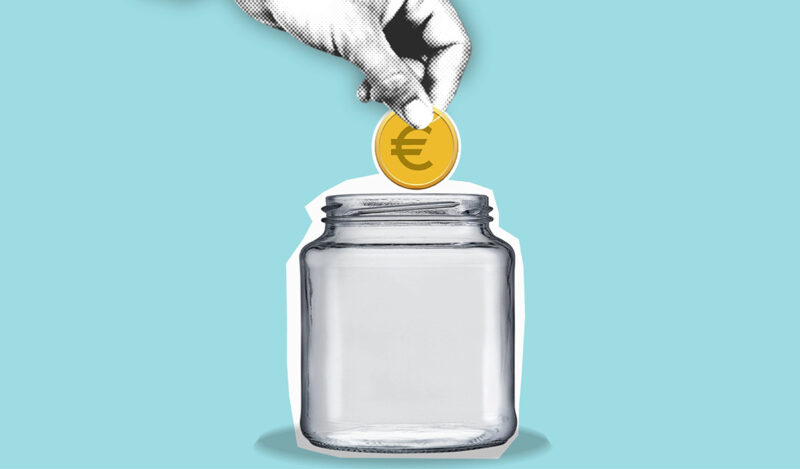

The downside of reducing access to credit
Banks have turned off the tap on lending because they fear a rise in non-performing loans. The difficulty in obtaining credit affects businesses and individuals, who have to cope with a rise in interest rates and a reduced supply of available credit.
Rising interest rates have pushed bank profits to record highs. The six main Spanish banks (Santander, BBVA, CaixaBank, Sabadell, Bankinter and Unicaja Banco) earned 19,761 million euros between January and September this year, 23.6% (3,747 million) more than in the previous period. In other words, in the first nine months of the year they have almost equalled the profits obtained during the whole of 2022, in which they made an all-time record of 20.8 billion in profits.
The profit figures are even more significant if we subtract the foreign activities of these banks, adding up to 9,000 million euros in profits, an increase of 55% over last year. This means that, if we add these profits to the data of the annual reports provided by Aebanca, the Spanish banking sector’s employers’ association, Spanish banks have accumulated net profits of more than 180 billion euros since the financial crisis of 2008 until 2023. And we should not forget that the cost borne by the state in injecting public money to rescue the financial sector exceeds 120 billion euros.
Despite these multi-billion euro profits, bankers continue to complain about the extraordinary tax on banks. According to Onur Genç, CEO of BBVA, “Spanish banks will not be able to compete in Spain”, while his counterpart at CaixaBank, Gonzalo Cortázar, stated last month that, “Taxing banks more is akin to shooting ourselves in the foot”, after he declared in May that, “It is not logical that we pay more than we earn”. On the government side, the Secretary of State for the Economy, Gonzalo García Andrés, does not understand the complaints about the tax on the sector after the latest profits declared: “I find it strange that we are still having this debate”.
Less remuneration for deposits and less access to credit
The Spanish banking sector has been one of the slowest in the European Union to reflect the European Central Bank’s interest rate hikes with a better return on savings. This has led to a flight of deposits by many families who have decided to diversify their savings by taking their money out of banks in favour of other products and investments that offer a higher return.
Moreover, according to the Bank of Spain’s Bank Lending Survey, Spanish banks have tightened the criteria and conditions applied to granting loans, due to the fear of default. Although the rate of non-performing loans rose slightly in August (3.56% compared to 3.5% in June and July), it closed the first half of 2023 at its lowest level in 15 years.
In this context, the Spanish government has called on financial institutions to “be extremely diligent” and speed up the granting of financial aid to families with variable-rate debt in difficulties, using the Code of Good Practices. Last week, the Bank of Spain reported that banks have yet to process 50% of the applications for adherence to the code for vulnerable mortgages.
The risk of cooling the economy and confidence in the banking sector
The restrictions in accessing credit mean that people with a higher risk, i.e. those who have more difficulties in paying their obligations, or who have no credit history, are unable to access financing. This difficulty in obtaining financing is experienced by both businesses and households. Even so, according to the Bank of Spain, during the last three months, the restrictions in the corporate financing segment have eased, while the conditions for household loans have tightened.
On the other hand, the higher cost of financing tends to cool the economy in general, as it dampens consumer spending and business investment. At the same time, as demand for goods and services falls, prices tend to moderate. In the business sector, the cost of capital needed to expand increases and the profitability of investments is reduced. In addition, some investors may reduce the money they have in the stock market and buy debt because of the higher returns.
While large companies have the option of ceasing to finance themselves through banks and can opt to go to the markets, SMEs and individuals are practically excluded from this alternative source of financing. If we add to this the precarious remuneration of savings, it is not surprising that the banking and financial services sectors are among those that generate the least confidence among consumers in Spain.
Fund lawsuits against banks. Do justice and get returns on your savings above inflation thanks to the compensation the banks will have to pay. All the information about Litigation Funding can be found at 11Onze Recommends.
Leave a Reply
You must be logged in to post a comment.





gràcies
Gràcies, Joan!!!